7 Types of Drill Bits You Need
Portable electric drills, whether corded or cordless, need different types of drill bits and accessories to make them useful.
Page Contents
There are seven basic types of drill bits:
- Twist Drills
- Brad Point Bits
- Spade Bits
- Masonry Bits
- Forstner Bits
- Countersink Bits
- Hole Saws
What follows is a list of the common types of drill bits and their uses. This way, you can look at your project plans and determine which ones you will need.
Twist Drill Bits
These bits are designed primarily for metal-work. They’re also suitable for Standard wood-boring. Twist drill bits, also known as “Carbon steel” bits, are adequate for woodwork.
Helpful hint: One problem with twist drill bits is that they are more challenging to center on a precise mark. When drilling wood, start a large hole with a 1/16 inch “pilot hole” to keep a big twist bit (over ¼ inch) on track. Drilling metal is even more difficult, so be sure to use a center punch to precisely mark the spot you are drilling.
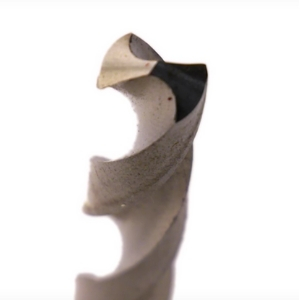
As a woodworker, a complete set of twist drill bits up to 1/2 inch in diameter will be necessary. Twist drill bits larger than 3/8 inch have a "reduced shank" so that the shaft can fit into your drill.
I suggest purchasing bits greater than 1/2 inch as needed since they are not that commonly used.
Brad-point Bits
The Brad-point drill bit is a twist drill bit with a sharp center-point that prevents it from wandering off your mark, and it has two Sharp spurs that cut a clean-edged hole.
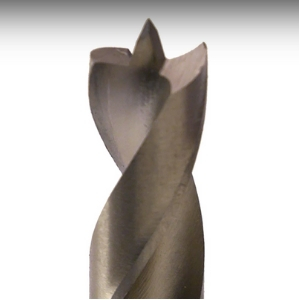
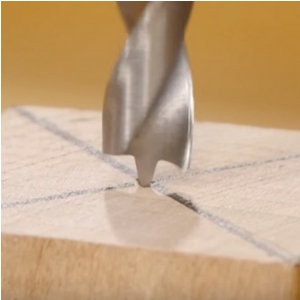
These are my favorite bits for working with wood because they are so precise. However, they are more expensive. When just starting, it’s good to have several standard sizes such as 1/8, 1/4, 3/8, and 1/2 inch bits.
Spade Bits
Relatively inexpensive, Spade bits are for drilling bigger holes. Spade bit sets are usually from ¼ inch to 1 ½ inch in diameter.
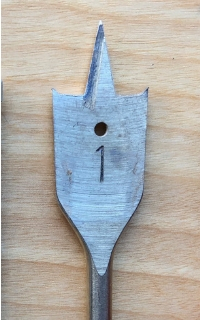
A Spade bit has a long “lead point” that makes centering the bit on your mark very useful. A full assortment of these bits is essential.
Masonry Bits
Tough tungsten carbide tips are attached to steel twist drill bits. Masonry bits can bore holes in concrete, brick, or stone.
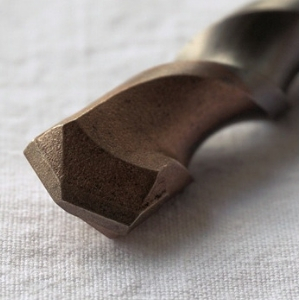
Forstner Bits
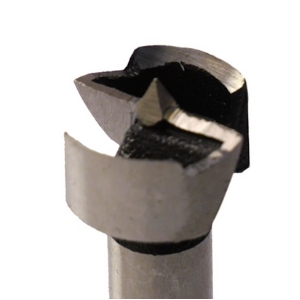
Exceptionally high-quality drill bits, Forstner bits are for boring large holes. I recommend purchasing them as needed for your projects as they’re quite expensive. They make very clean and flat-bottomed holes that are not affected by varying wood grain or knots. You can even overlap holes with a Forstner Bit and get exceptional results.
Countersink Bits
Countersink bits will make a tapered recess to accept the Head of a countersunk wood screw. First, drill your hole, then set the point of the countersink bit in your hole and run the drill at a hi-speed to make a clean countersink.
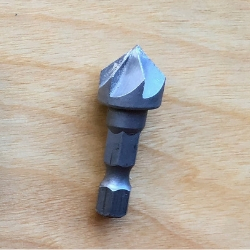
Hole-Saws
A hole-saw blade fastens to a twist drill that passes through its center. You can purchase Hole-saws in a set ranging from 1 inch to 3 ½ inches in diameter.
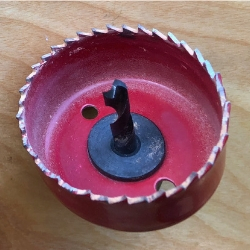
Secure the shank of the bit in your drill, and the saw blade spins to cut a large hole. These are very useful for projects where you need a large hole through your stock, such as when installing a doorknob or deadbolt lock.
Screwdriver bits
For every screw manufactured today, there is a screwdriver bit to fit your drill. The most common are Phillips and Torx.
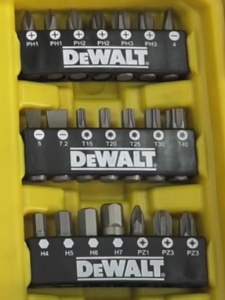
I strongly recommend avoiding the standard slotted wood screw for use with a powered drill screwdriver bit. The bit has nothing to anchor it in the screw. Every time I have used one, it slipped off the screw, gouging the project with the bit. It is virtually impossible to keep the screw bit in the slot while it is rotating.
Proper bit and screw combinations make fastening wood projects together easy. Having the appropriate screw driving tips on hand will be very helpful for all of your projects.
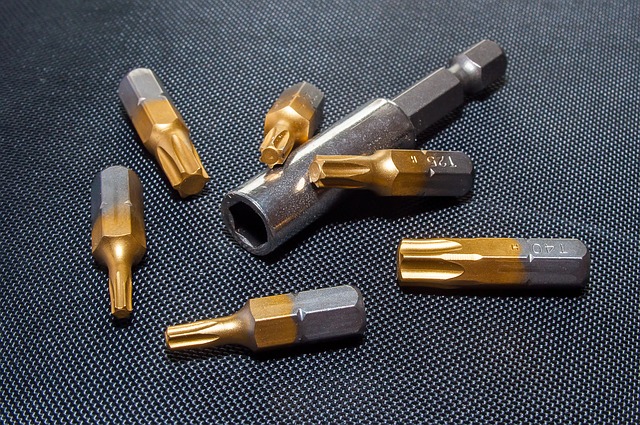
Final Wrap-up
Drill bits are an essential part of any woodworkers toolkit. Be sure to take a look at your project plans and make your purchases accordingly. Of course, you will quickly find that it is much less expensive to buy an assortment of drill bits and accessories than it is to purchase each bit one at a time. An essential list to have on hand for virtually all projects will include:
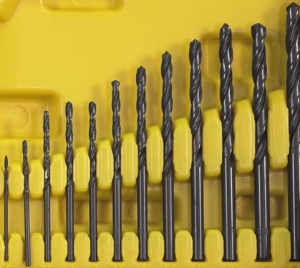
- twist drill bits up to, one half inch
- several Brad Point Bits
- Spade Bits from 1/4 up to 1 ¼ inch
- a countersink bit
- an assortment of Screwdriver Bits
- magnetic screwdriver bit extension
I hope you now have a better understanding of the types of drill bits and what they are used for so you can get started woodworking with all the right tools.
Not sure about what kind of drill you need? Check out my post on cordless and corded drills here.
Let me know what projects you are working on in the comment section I’d love to hear about your woodworking successes!
Greg

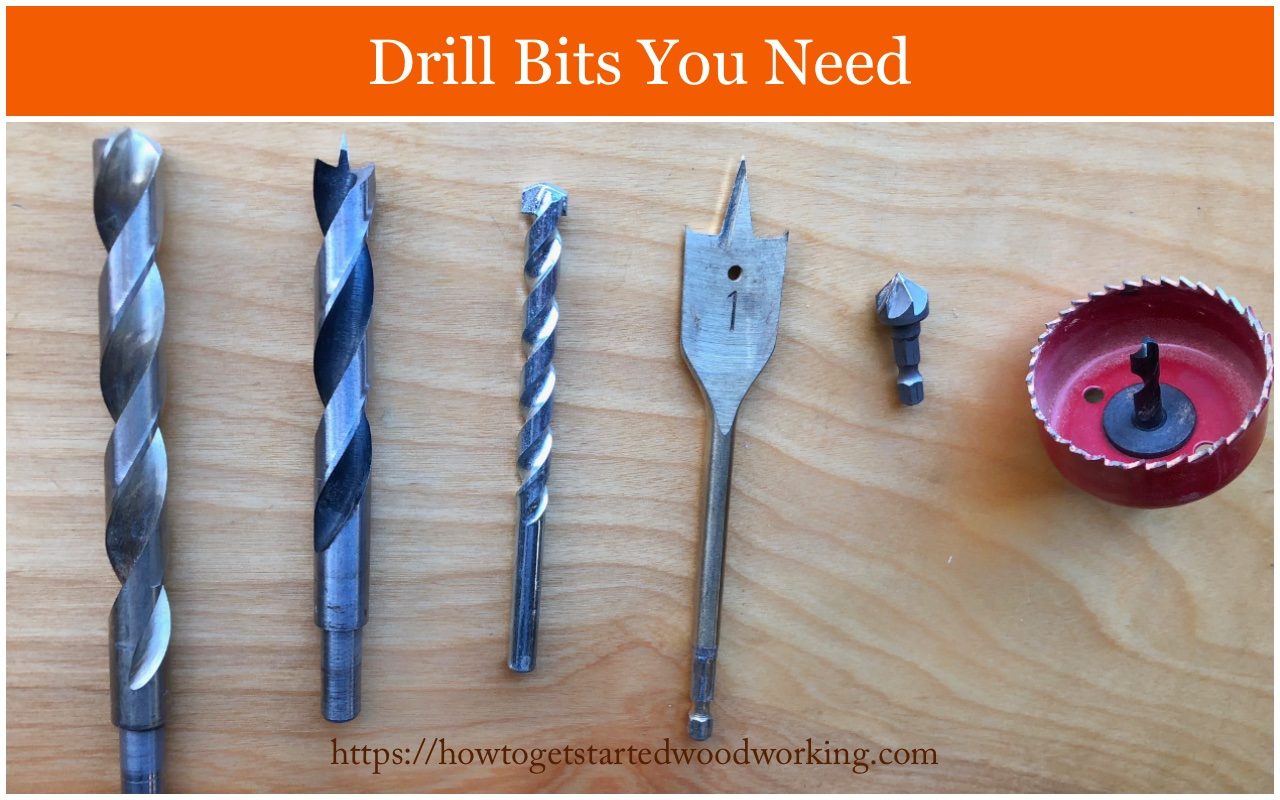
Hi there! I just want to give a huge thumbs up for the good data you’ve right here on this post. I will be coming back to your blog for more soon.
Hey thanks for taking time to comment! I hope to hear from you again soon!